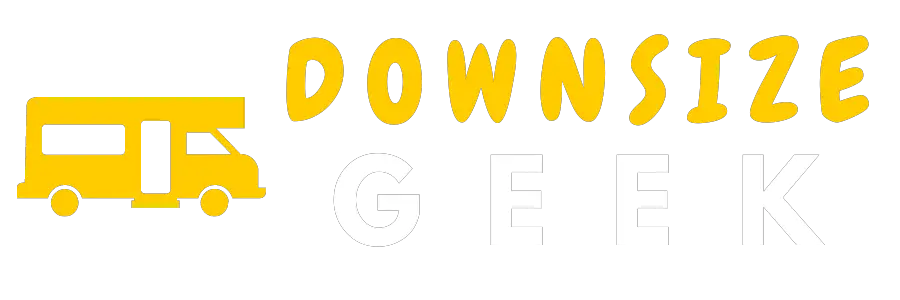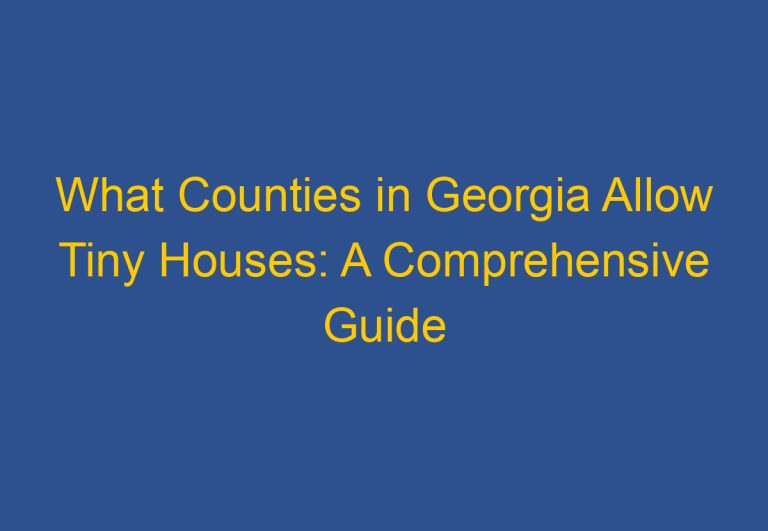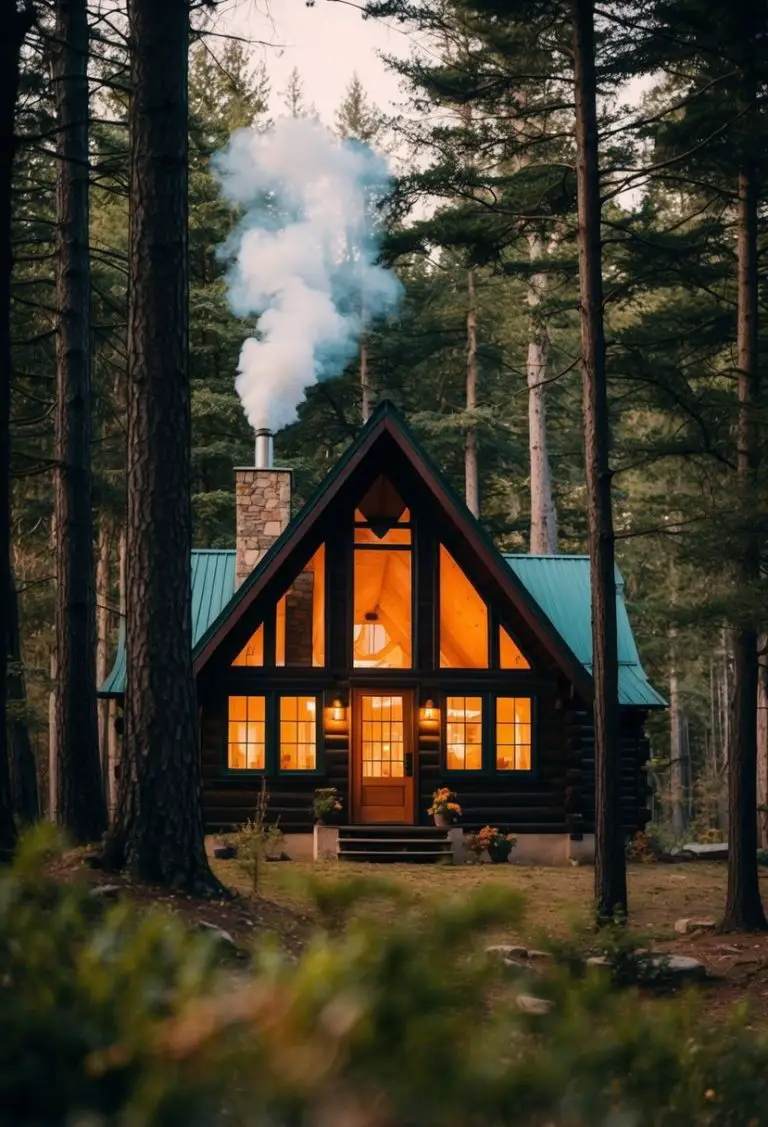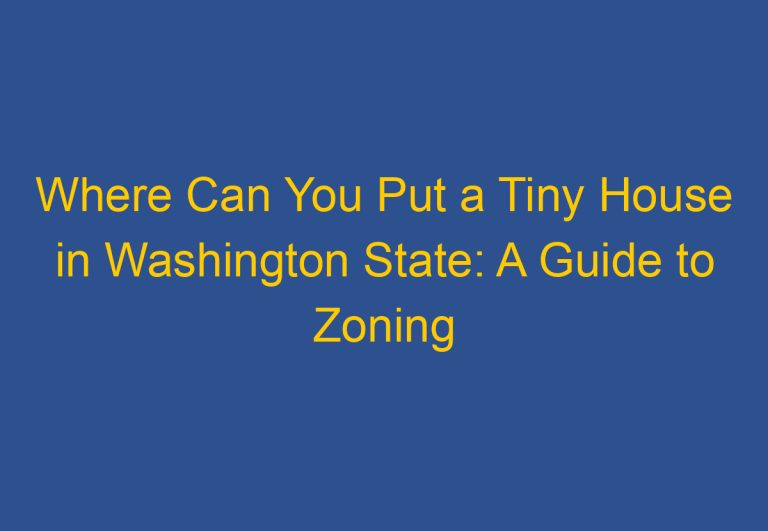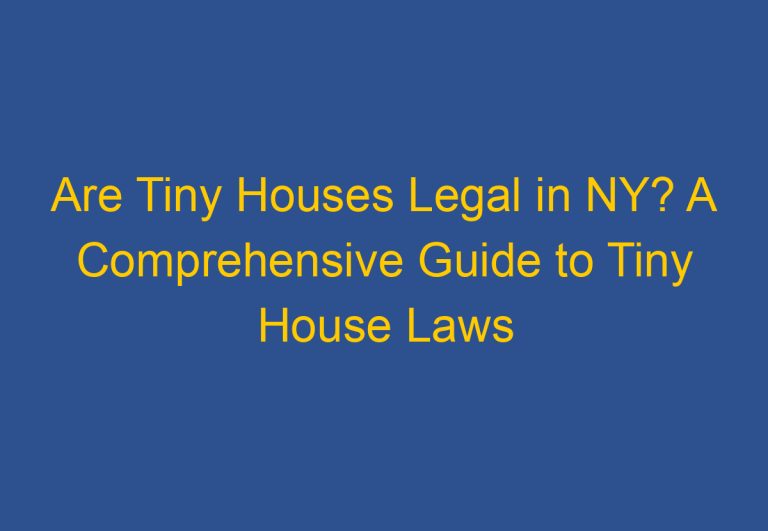Are Tiny Houses on Wheels Considered RVs? Explained
Tiny houses on wheels have become increasingly popular in recent years, with many people opting for this minimalist lifestyle. However, there is often confusion around whether tiny houses on wheels are considered RVs. In this article, we’ll explore this topic and provide clarity on the matter.
The tiny house movement has gained momentum in the past decade, as people seek to downsize and simplify their lives. Tiny houses on wheels offer the added benefit of mobility, allowing homeowners to travel and explore new places while still having the comforts of home. However, this mobility has raised questions about whether these homes are classified as RVs.
To answer this question, it’s important to understand the definition of an RV. Generally, an RV is a vehicle designed for recreational use, with living quarters for temporary or seasonal use. While tiny houses on wheels share some similarities with RVs, there are also significant differences that set them apart. In the following sections, we’ll explore these differences in more detail and provide a clearer understanding of whether tiny houses on wheels are considered RVs.
Legal Classification and Zoning Laws
Defining RVs and Tiny Homes on Wheels
Tiny homes on wheels are legally classified as park model RVs. This means that they are subject to the same standards and regulations as RVs. The National Fire Protection Association (NFPA) 1192 standard and the Recreational Vehicle Industry Association (RVIA) certification are two of the main standards that tiny homes on wheels must meet to be considered RVs.
Zoning Regulations and Parking
Zoning regulations for tiny homes on wheels vary by state, city, and even neighborhood. Some local zoning laws consider tiny homes on wheels as RVs and require them to be parked in designated RV parks or campgrounds. Other zoning laws may classify tiny homes on wheels as permanent dwellings and require them to meet building codes and other standards for permanent structures.
Registration and Inspection Requirements
Tiny homes on wheels must be registered and inspected just like any other vehicle. The Department of Motor Vehicles (DMV) in each state has specific requirements for registering and titling a tiny home on wheels. The tiny home on wheels may also need to be inspected by a certified inspector to ensure that it meets all safety and code requirements. The tiny home on wheels will also need a Vehicle Identification Number (VIN) to be registered.
It is important to note that some communities may have additional ordinances and regulations regarding tiny homes on wheels. Before purchasing or building a tiny home on wheels, it is important to research and understand the legal requirements in the intended location. This may involve obtaining permits, meeting building codes, and ensuring compliance with zoning laws.
Design, Construction, and Lifestyle
Construction Standards and Customization
Tiny houses on wheels are built to specific construction standards to ensure safety and durability. Most tiny homes are built on a chassis, which is essentially a trailer frame that is designed to support the weight of the structure. Manufacturers use lightweight materials such as wood to keep the weight of the tiny house down, making it easier to tow.
One of the biggest advantages of a tiny house on wheels is the high level of customization available. Tiny homes can be built to fit the specific needs and preferences of the owner. This includes everything from the size and layout to the type of furniture and appliances used. DIY enthusiasts can even build their own tiny house on wheels, making it a truly unique and personal living space.
Living in a Tiny House on Wheels
Living in a tiny house on wheels can be a great way to downsize and embrace a minimalist lifestyle. The small size of the living space encourages people to prioritize what is truly important in their lives, and to let go of unnecessary possessions.
While tiny homes on wheels are mobile and offer flexibility in terms of travel, it is important to note that they are not always designed for full-time living. Some tiny homes lack the amenities necessary for a permanent residence, such as a full kitchen or bathroom. Additionally, the small size of the living space can be challenging for some people to adjust to.
Advantages and Limitations
There are many advantages to living in a tiny house on wheels. They are often more affordable than traditional homes, and can be designed to be eco-friendly and energy-efficient. Additionally, the mobility of a tiny house on wheels allows for a sense of freedom and adventure.
However, there are also limitations to consider. The small size of the living space can make it difficult to entertain guests or store belongings. Additionally, moving a tiny house on wheels can be a complicated and expensive process. It is important to carefully consider these factors before deciding if a tiny house on wheels is the right choice for you.
Frequently Asked Questions
What distinguishes a tiny house on wheels from a traditional RV?
While both tiny houses on wheels (THOWs) and recreational vehicles (RVs) are built on a movable chassis, they differ in several ways. THOWs are typically designed to be more permanent and offer more living space than RVs. They often include features like lofts, full kitchens, and bathrooms. In contrast, RVs are designed for short-term travel and may have limited amenities.
What are the legal implications of living in a tiny house on wheels compared to an RV?
The legal implications of living in a THOW versus an RV can vary depending on the state and local laws. THOWs are often subject to zoning and building codes, while RVs may be subject to different regulations. It’s important to research and comply with the laws in your area to avoid potential legal issues.
How does RVIA certification affect tiny houses on wheels?
The Recreational Vehicle Industry Association (RVIA) offers certification for RV manufacturers, but it’s not required for THOWs. However, RVIA certification can provide certain benefits, such as easier financing and insurance options. It’s important to note that not all THOWs are eligible for RVIA certification.
Can tiny houses on wheels be legally parked in RV campgrounds?
The rules for parking THOWs in RV campgrounds can vary depending on the specific campground and its policies. Some campgrounds may allow THOWs, while others may only allow RVs. It’s important to research and confirm the policies of any campground before attempting to park a THOW there.
What are the requirements for towing a tiny house on wheels?
Towing a THOW requires a vehicle with sufficient towing capacity and a compatible hitch. It’s important to ensure that the THOW is properly secured and balanced for safe towing. Additionally, some states may require special licenses or permits for towing a THOW.
Are there differences in insurance coverage between tiny houses on wheels and RVs?
Insurance coverage for THOWs and RVs can vary based on factors like the value of the unit and the intended use. THOWs may require specialized insurance policies that differ from those for RVs. It’s important to work with an insurance provider who understands the unique needs of THOW owners.
